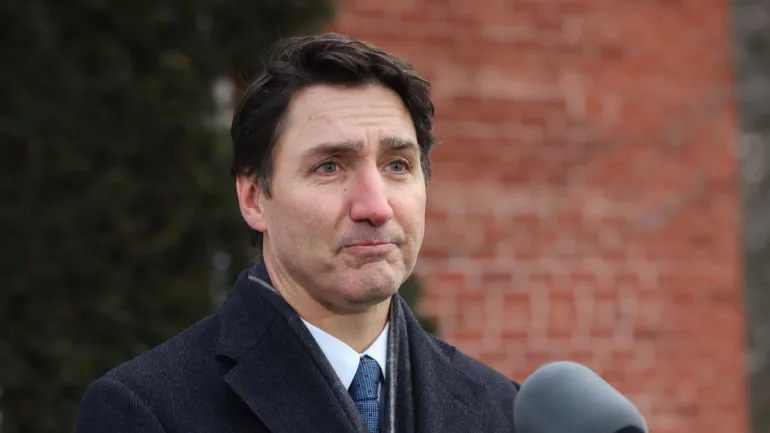Canada’s Prime Minister Justin Trudeau announced his resignation on Monday, stating he will step down once the Liberal Party selects a new leader.
His decision comes after months of declining poll numbers and growing internal division within the party.
“I intend to resign as party leader and as prime minister after the party selects its next leader,” Trudeau, who has held office since 2015, told reporters in Ottawa. His announcement follows a prolonged political crisis and increasing pressure from key Liberal allies urging him to step down.
It remains unclear how long Trudeau will continue to serve as a caretaker prime minister during the leadership transition. He emphasized that the upcoming Liberal leadership race would be a “robust, nationwide competitive process.”
Trudeau’s resignation comes just as incoming US President Donald Trump assumes office this month. Trudeau will lead Canada through the early stages of the new administration, including managing the potential fallout from Trump’s proposed tariffs, which could significantly impact the Canadian economy. Trump has threatened a 25 percent tariff on all Canadian imports, and Trudeau has vowed to retaliate.
Trudeau’s popularity within the Liberal Party has been in decline for much of the past year, hitting a new low after the surprise resignation of former Finance Minister and Deputy Prime Minister Chrystia Freeland in December.
In a harsh resignation letter, Freeland criticized Trudeau for focusing on political strategies, such as a costly Christmas tax holiday, rather than addressing Canada’s financial stability ahead of potential US tariffs.
Freeland and former Bank of England Governor Mark Carney, a Canadian who also led the Bank of Canada, have been mentioned as possible contenders to succeed Trudeau.
Political science professor Lori Turnbull of Dalhousie University noted that while a typical Liberal leadership race takes four to six months, this process will need to be faster. “If they don’t have a new leader by the next election, there’s no point,” she told AFP.
Trudeau’s Liberal Party has been trailing the opposition Conservatives in the polls and narrowly survived three non-confidence votes in Parliament last year. His minority government had been propped up by an agreement with the left-wing New Democratic Party (NDP), but in December, the NDP indicated they would vote to remove Trudeau at the next opportunity.
Trudeau confirmed that he had received permission from Canada’s Governor General to suspend all parliamentary business until March 24. This could give the Liberals time to select a new leader while limiting the opposition’s ability to push for a vote of non-confidence.
AFP


